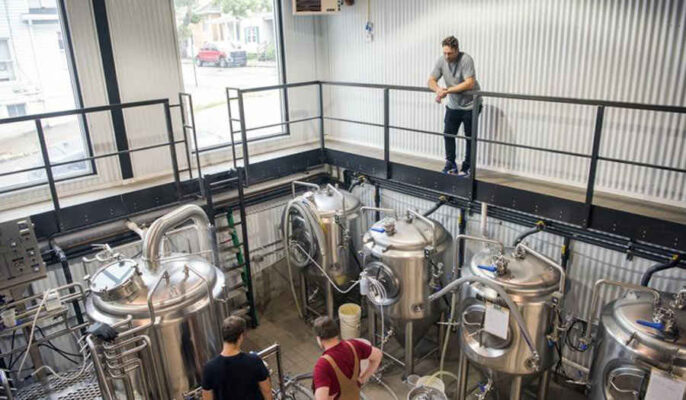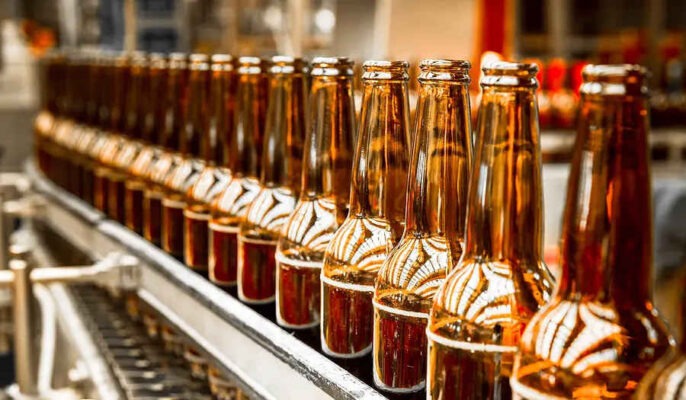Pasteurization is the process of heating beer to a temperature that kills any living microorganisms. Pasteurization heats beer to a temperature of at least 145°F. At these temperatures, bacteria and microbes die, leaving behind a clean, safe beer. Pasteurization of beer occurs after fermentation at the end of industrial production. A mild heat treatment (60°C) is applied, aimed at inactivating fermenting yeasts and potential spoilage micr oorganisms, thereby prolonging the shelf life of the beer at room temperature.
What is pasteurized beer?
Pasteurization is the process of heat-treating beer to inhibit the growth of beer-spoiling microorganisms and extend the shelf life of beer. Pasteurization is named after the great French scientist Louis Pasteur, who was able to keep beer at a temperature of 55°C–60°C (131°F–140°F) for a short period of time To prolong the drinking quality of beer. Produces most of the world’s draft beer and bottled/canned beer.

Why is Beer Pasteurization Important?
Pasteurization has been used to prevent food spoilage for centuries, and modern techniques were perfected by Louis Pasteur.
Pasteur started working in French vineyards and later turned to beer. In 1873, he received US Patent 135,245 “Improvement in the Pasteurization of Beer and Ale.” In his lengthy description, he included his results: “I found that the beer produced by my new process was invariant and could be shipped without damage or spoilage.”
When pasteurization was introduced to the brewing industry, it was revolutionary. Refrigeration is uncommon, beer is prone to spoilage, and the chances of infection in packaged beer are high.
Pasteurization process
Heat kills bacteria: By heating the liquid to a high temperature, you can kill bacteria in the liquid. During the brewing process, pasteurization is used to stop the growth of yeast that may remain in the beer after packaging.
Canned and Bottled Beer: Only canned and bottled beer is pasteurized. The pasteurization process usually occurs after the beer is placed in cans or bottles and sealed for packaging.
Kegs: Beer is usually not pasteurized, so must be stored at 38°F to prevent secondary fermentation in kegs.
Benefits of Pasteurized Beer
Also to extending the shelf life of beer, pasteurizing beer has several other benefits.
Kill bacteria
One of the most important reasons for pasteurizing beer is that the process destroys pathogens and bacteria that grow in the beer. This ensures that the company’s packaged beer is safe for the drinker and does not spoil .
Prevent yeast growth
The brewing process leaves yeast residues in the beer. If left unchecked, the yeast can start to overgrow, changing the flavor and freshness of the beer. Pasteurization stops the growth of yeast. Guaranteed to taste better beer.
Reduce cooling needs
Pasteurized beer kegs are good for six to nine months at room temperature. Unpasteurized beer, but, only keeps for about 45 to 60 days.
Additionally, pasteurized beer can be returned to the refrigerator after opening. Unpasteurized beer cannot be returned to the refrigerator after opening and must be used up or thrown away in its entirety.
Have better extensions
Because pasteurized beer has a longer shelf life, brewers can ship their beer over greater distances. They can cut the cost of producing more beer and help drop waste in the production process.

Tunnel pasteurization vs batch pasteurization
Batch pasteurization
Batch pasteurization has long been a popular pasteurization method for products such as beer and dairy. With this method of pasteurization, brewers place beer in temperature-controlled vats.
The main advantage:
- kill bacteria and pathogens
- Can be used in keg beer instead of bottles and cans
- Provides consistent pasteurization quality
Because of these advantages, this pasteurization makes sense for brewers who want to process keg-aged beer. The process happens before the beer is bottled and is quick, making it a convenient method of pasteurization.
Tunnel pasteurization
Tunnel pasteurization is the process by which breweries run tanks filled with beer through stainless steel tunnels. In the tunnel, machines spray hot water onto the finished product. The tunnel method heats the beer to a temperature of 140°F for a set time. The machine then moves the beer down the tunnel to another section, where it cools again.
The main advantage:
Very effective in killing harmful bacteria
- Effective in preventing yeast growth
- Very suitable for brewers with domestic/international reach
- The work intensity is not high
Because of these advantages, it is becoming a popular pasteurization method for large craft breweries.
In conclusion
Although pasteurization is effective in preventing microbial spoilage in beer, it can speed up beer spoilage, which can affect flavor. Heat during pasteurization increases the rate of chemical change. Brewers strive to cut oxygen uptake during packaging and cut the use of PU to keep beer fresh for as long as possible.




